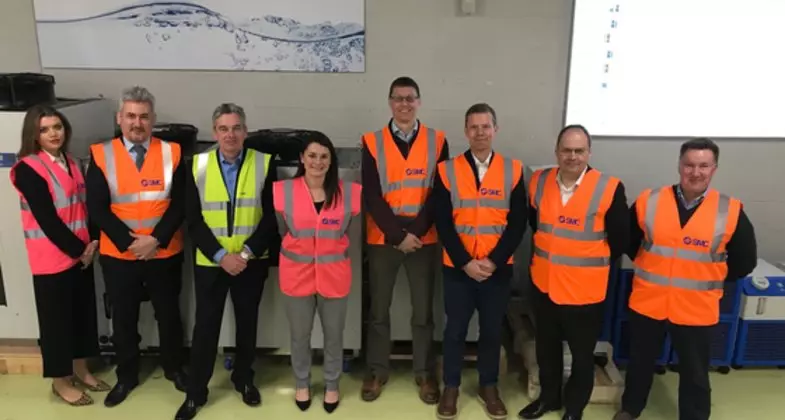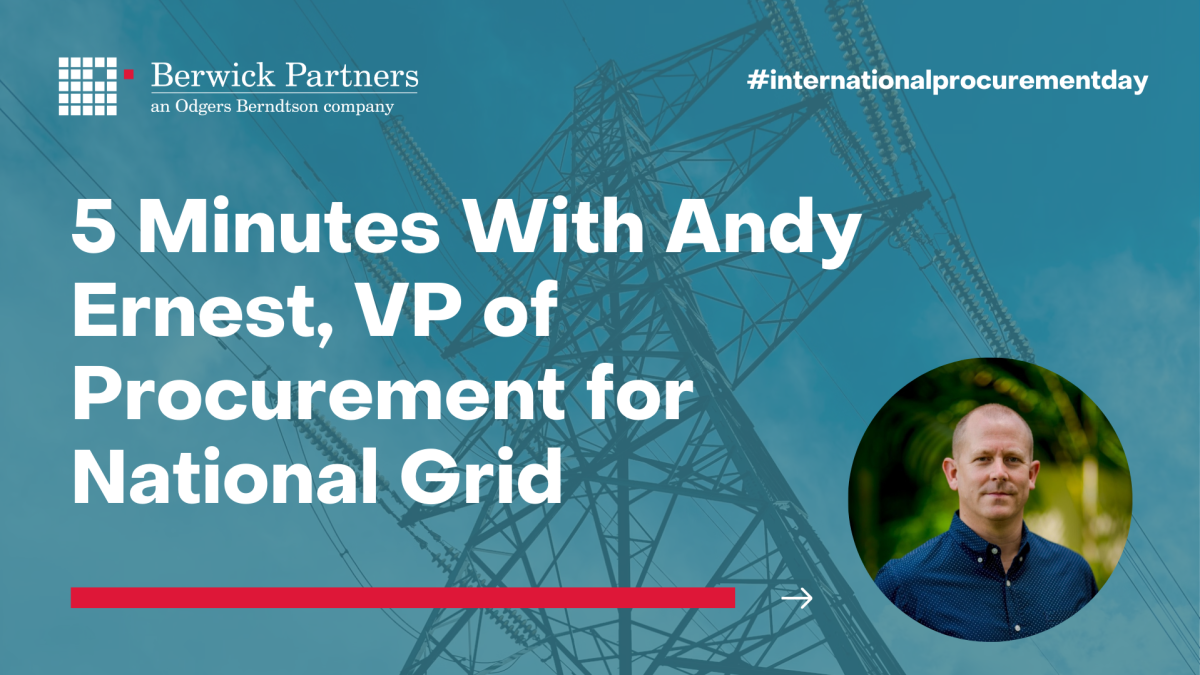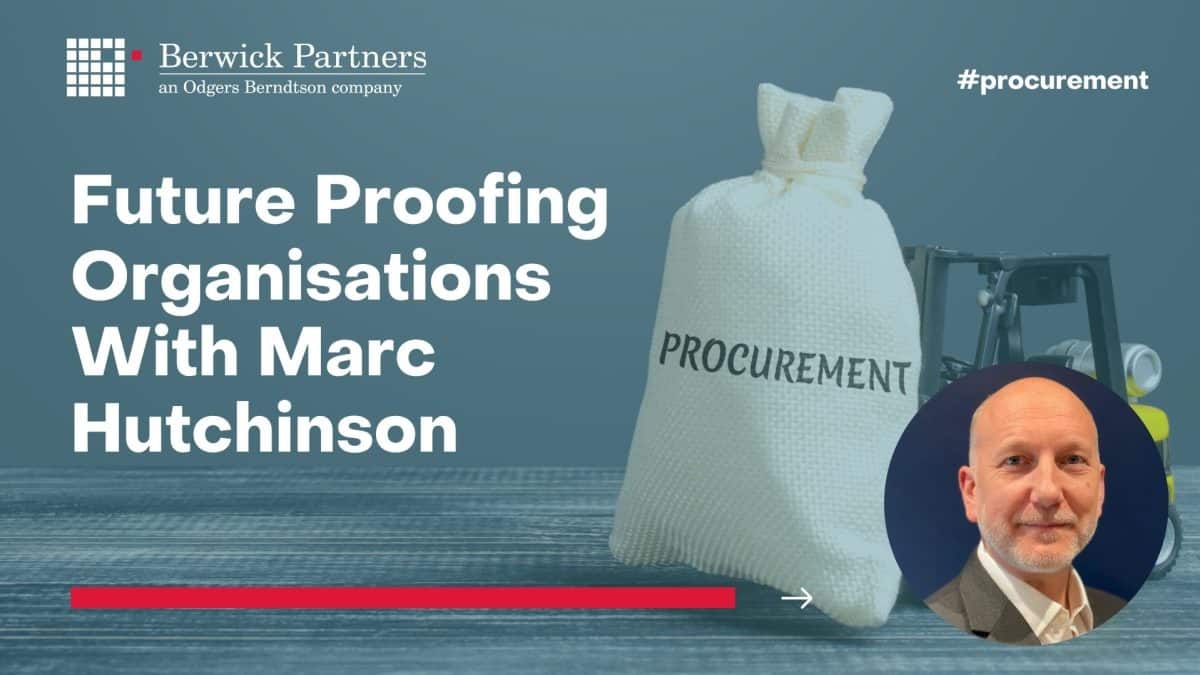Five minutes with…Charlotte Horobin, Region Director – Midlands & East of Make UK
Charlotte Horobin joined what was then the Engineering Employers’ Federation in 2013 and has quickly progressed to lead the East and Midlands regions, supporting a wide range of sectors in some of the UK’s manufacturing heartlands.
David Thomas, a Partner in the Engineering and Manufacturing Practice at Berwick Partners, caught up with Charlotte to discuss the current industrial landscape and what the future might hold.
What role does Make UK fulfil?
Make UK is the largest voice that champions and backs manufacturing, making sure that big policy items across manufacturing subsectors are communicated. They provide robust evidence and anecdotal stories to make sure the sector is properly represented. Make UK also share best practice to help people to drive their businesses forward, and work with universities and schools to drive local and community initiatives. Next-generation interest in UK production is a critical part of our role, evidenced by active engagement in apprenticeship schemes.
Why did you rebrand to Make UK in 2019?
We were established in 1896, when Queen Victoria was on the throne and the first car plant had just opened in Coventry. At the time, the engineering employers recognised they needed to have a voice to work alongside the trade unions. 2019 was a monumental year and the rebrand to Make UK represents what is a modern, vibrant manufacturing sector, not just a narrow channel of engineering. The diversity of sectors in the UK at the cutting edge of global technology advancement includes world-leading influence in sectors as diverse as FMCG, Motor Racing, Aerospace and Advanced Materials. We work to ensure the varied sectors are easily understood and relatable.
There are clearly skills challenges for the manufacturing sector. What would you do now and how would you encourage the next generation to consider careers in manufacturing?
We have a skills shortage in the UK and, as our relationships change across Europe, the flow of talent that manufacturing sectors rely on could narrow in the short term. We have an immediate need right now for more technically proficient people – in my mind, this can be solved through training and development, apprenticeships, and upskilling existing staff in the latest technical innovations. Make UK runs upskilling courses in robotics and automation, and retraining will take on a greater focus as we move towards a new immigration system in the coming months.
The skills requirement can, however, sometimes overshadow a leadership and management gap. Over the last 20 years we perhaps haven’t developed enough leaders, and this can manifest itself in poor productivity performance.
For me, the best way to inspire the next generation is to promote the sector via the most recent entrants. Our apprentices and graduates who have chosen a manufacturing career path go in and engage with their peer group. Our experience is that a Chief Executive or Director can perhaps seem too distant. We get young employees to go into schools to evangelise about making things.
We have also must support what I call the influencers, the parents and teachers, helping them to understand what modern manufacturing can be – one of the best paid careers, with a world of opportunities. There are many roles on offer – for some it is all about being an engineer, but it could also be about HR, finance or operations; the opportunities are endless.
What is your role within Make UK?
I am the Region Director for the Midlands and East of England. My role is to understand members’ needs and be curious on their behalf. This could be signposting someone to the support that Make UK can offer, whether that be industry insight, cost savings, productivity gains, employment law, health and safety, or support and training. We protect our members and help to upskill them. We can also point them towards funding or research capability in the universities, catapults and research associations. We want to support growth and help to solve the challenges that can lead members to greater success.
What are the opportunities and threats for manufacturing currently?
Skills are the number one challenge, which we have covered. We need more technically proficient people to embrace massive technological shifts. When you take away the Brexit-related concerns, our surveys indicate that our focus should really be on cyber security and sustainability. We should be talking more about these issues. With threats come opportunities – the opportunity to digitise, to embrace Industry 4.0, to improve productivity and to export more around the world.
The productivity challenge is misunderstood: when we talk about productivity, it is often assumed this refers to manufacturing when in reality the sector performs two to three times better than the service sector. As a nation, our productivity has remained flat since the financial crash and needs to embrace global best practice. Our labour content is higher, and we haven’t invested enough in automation. We don’t have as many of the ‘Mittelstand’ businesses that you see in Germany – privately or family-owned organisations that are thinking long term. Leadership and management are hard to measure but the USA, for example, has more structured and consistent training programmes for leaders. In the UK we do have some great class-leading examples, but also some poor examples.
Is ‘Made in Britain’ still renowned today?
Largely, yes – we are a highly-respected manufacturing nation, great at innovation, and with a high-quality stamp. The British brand is still renowned and respected globally.
What success stories are you seeing in UK Manufacturing?
We recognise that policy change at governmental level takes time; for example, the education system is complex and takes time to change and so you won’t see fundamental improvements or differences overnight.
We often see our members pushing to innovate and trying to solve their problems today, from providing sponsorship in local schools; building brand new sustainable factories that rely on natural heat and light; developing local supply chains that are resilient, high-quality and with a reduced carbon footprint; and members collaborating to train the next generation. It is inspiring to see and an exciting time to be involved.
You have developed your career quickly. What lessons have you learnt and what are the foundations of your progression?
I think listening is really important. Where we have supported our members most effectively is because I have listened to their concerns and been able to respond accordingly. Lord Bilimoria, the founder of Cobra Beer, has a great expression that I really like – “be humbitious”, be humble but be ambitious. This is where my head goes; do the best I can for our members and never take my role for granted.
I am in a privileged position to be able to hear intimate details from a wide range of manufacturing organisations.
We live in a period of profound technology change. Fast forward 10 years, what will be the biggest difference to the way we live?
I think we will see a much higher degree of customisation of goods with less mass-produced products and shorter lead times. I see a ‘make as you need’ world where sustainability wins alongside greater personalisation. For example, you might have half the number of clothes, but they will be more bespoke. Individuals will own less but with a higher degree of customisation, and there will be an increase in service models rather than ownership provision. The sustainability challenge will require us to think more radically about the business models of the future.
For more information, please contact David Thomas, a Partner in the Manufacturing & Engineering Practice at Berwick Partners.





